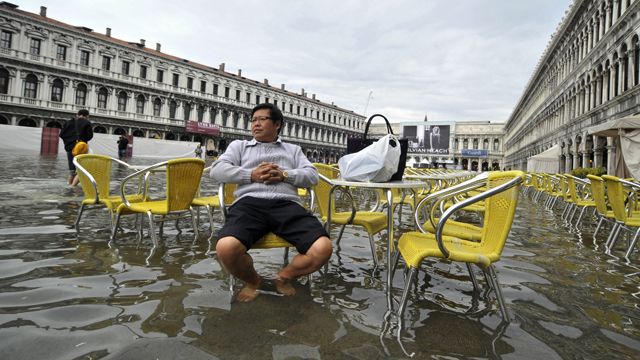
Last week, an early draft of an Intergovernmental Panel on Climate Change (IPCC) report was leaked to bloggers and picked up in the mainstream press. The first installment of that report, released in September, stated that human activity “has been the dominant cause of the observed warming since the mid-20th century.” This leaked second installment shows the severity and breadth of the climate change impacts for which we’ll need to prepare. On the New Yorker’s Daily Comment blog, Elizabeth Kolbert asks whether the “Boy Scout-ish” notion of preparedness is even possible, given what the IPCC report reveals.
The I.P.C.C. doesn’t conduct any research of its own—its conclusions are based entirely on already-published scientific papers—so it could be argued that there was no real news in the latest document. The force of the report comes simply from assembling all the data in one place; the summary reads like a laundry list of the apocalypse—flood, drought, disease, starvation. Climate change, the group noted, will reduce yields of major crops by up to two per cent each decade for the remainder of this century. (One of the reasons for this is that heat waves, which will become more common as the world warms, depress the yields of staple crops like corn.)
Since the global population is projected to grow throughout the century — to eight billion by 2025, nine billion by 2050, and almost eleven billion by 2100 — this is obviously rather bad news. At the same time, the incidence of flooding, drought, and general weather-related mayhem will increase, and already-vulnerable populations will be pushed closer to the edge, or, quite possibly, over it. Conflict is bound to ensue. Climate change “will increasingly shape national security policies,” the report warns.Meanwhile, as bad as things look for humans, the prognosis for non-humans is, in many ways, worse. Under all the scenarios that the I.P.C.C. panel considered, including an implausible one in which the world imposes drastic limits on carbon emissions right now, a “large fraction” of terrestrial and freshwater species face elevated extinction risks. Under the most likely scenarios, many species “will not be able to move fast enough during the 21st century to track suitable climates”, and there is a chance that some ecosystems, including the Arctic tundra and the Amazon rainforest, will undergo “abrupt and irreversible change.” Forests are already dying back in some parts of the world because of warming-related stress, and more forests are likely to follow suit as temperatures continue to rise. As Grist put it in a summary of the findings, “Animal Planet will get really boring.”

